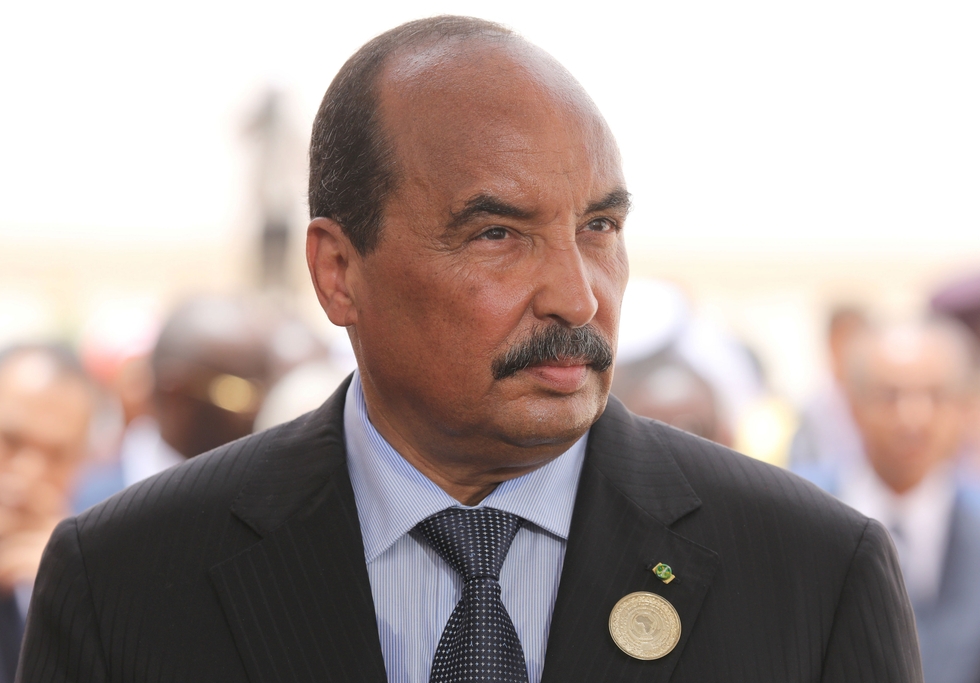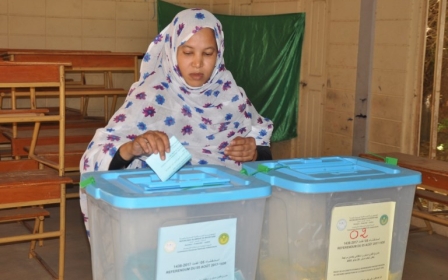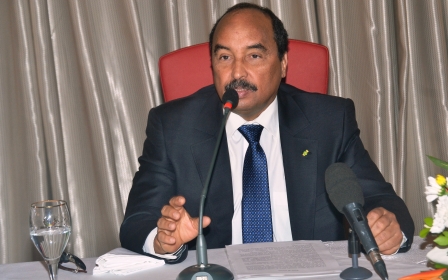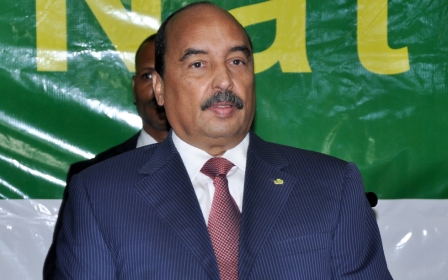Mauritanians vote in last election before key presidential ballot

Mauritania has gone to the polls in legislative, regional and local elections that will test head of state Mohamed Ould Abdel Aziz's record seven months before a presidential vote.
There were no queues as voting began at 07.00 GMT on Saturday in the capital's residential district of Tevregh Zeina.
Military personnel cast their ballots Friday to free themselves up to provide security in the vast and arid west African state with a registered electorate of some 1.4 million.
"I voted for people I support in different parties including some from the ruling party and others in the opposition," a woman who identified herself as Fatimatou told the AFP news agency.
"It's not easy," she added after taking eight minutes to fill in the forms and deposit them in five different ballot boxes.
Polling booths were to close at 19.00 GMT with first results not expected until the middle of next week. There are no international observers.
The opposition, which boycotted the last polls in 2013, is standing in the triple elections with a record 98 parties are taking part.
Potential run-off elections would take place on September 15.
Presidential suspicions
Aziz, 61, who came to power in a coup in 2008, won elections in 2009 and again in 2014 for a second five-year term.
He has been frequently accused by opposition figures and NGOs of rights abuses, including the arrest of a former senator and the "secretive" detention of a blogger.
Aziz has said several times he will not seek a third mandate, which would be against the constitution, but statements by his ministers and supporters have allowed suspicions to flourish.
Final campaign rallies drew sparse attendance despite the opposition shelving its boycott.
Aziz has slammed opposition leaders as "villains" and "troublemakers".
He has described some as "dangerous Islamists, racist extremists and the leftovers of former regimes which brought the country to its knees".
Earlier this week, he accused Islamists of "just awaiting their political failure to take up arms".
That brought an indignant response from Jemil Ould Mensour of the Islamist party Tewassoul.
"It is Mr Aziz who took up arms against an elected regime and is assassinating democracy," he charged, referring to the 2008 coup.
Veteran opposition leader Ahmed Ould Daddah, who heads the Gathering for Democracy (RFD), has urged voters to make "the necessary leap to get rid of dictatorship and generalised bankruptcy".
Economic factors
The ruling Union for the Republic is campaigning largely on changes it made in the 2017 constitution, abolishing the senate and bringing in a new national anthem and flag.
Voters endorsed the controversial measures in a referendum, while the opposition warned they would give the president more power.
After more than a year of detention on corruption charges, former senator Mohammed Ould Ghadda, who led the campaign against the constitutional changes, was due to be released on Friday, his lawyer said.
However, Ould Ghadda rejected the conditions set for his release and remained in detention, laywer Mohamed El Mamy said in a statement.
On the economic front, authorities say growth has revived, with three percent reported in 2017 and a poverty rate of 31 percent, against over 40 percent in 2008.
The opposition sees a fall in living standards since the introduction at the start of the year of new, lower-value bank notes. National debt is equal to GDP.
Mauritania, which hosted an African Union summit in July, has recently revived diplomatic ties with Morocco, after years of tension over the status of Moroccan-annexed Western Sahara.
In July, a Mauritanian general took over the command of the G5 Sahel force as the army works with Burkina Faso, Mali, Niger and Chad in a European-backed military operation to defeat armed groups in the region.
New MEE newsletter: Jerusalem Dispatch
Sign up to get the latest insights and analysis on Israel-Palestine, alongside Turkey Unpacked and other MEE newsletters
Middle East Eye delivers independent and unrivalled coverage and analysis of the Middle East, North Africa and beyond. To learn more about republishing this content and the associated fees, please fill out this form. More about MEE can be found here.




